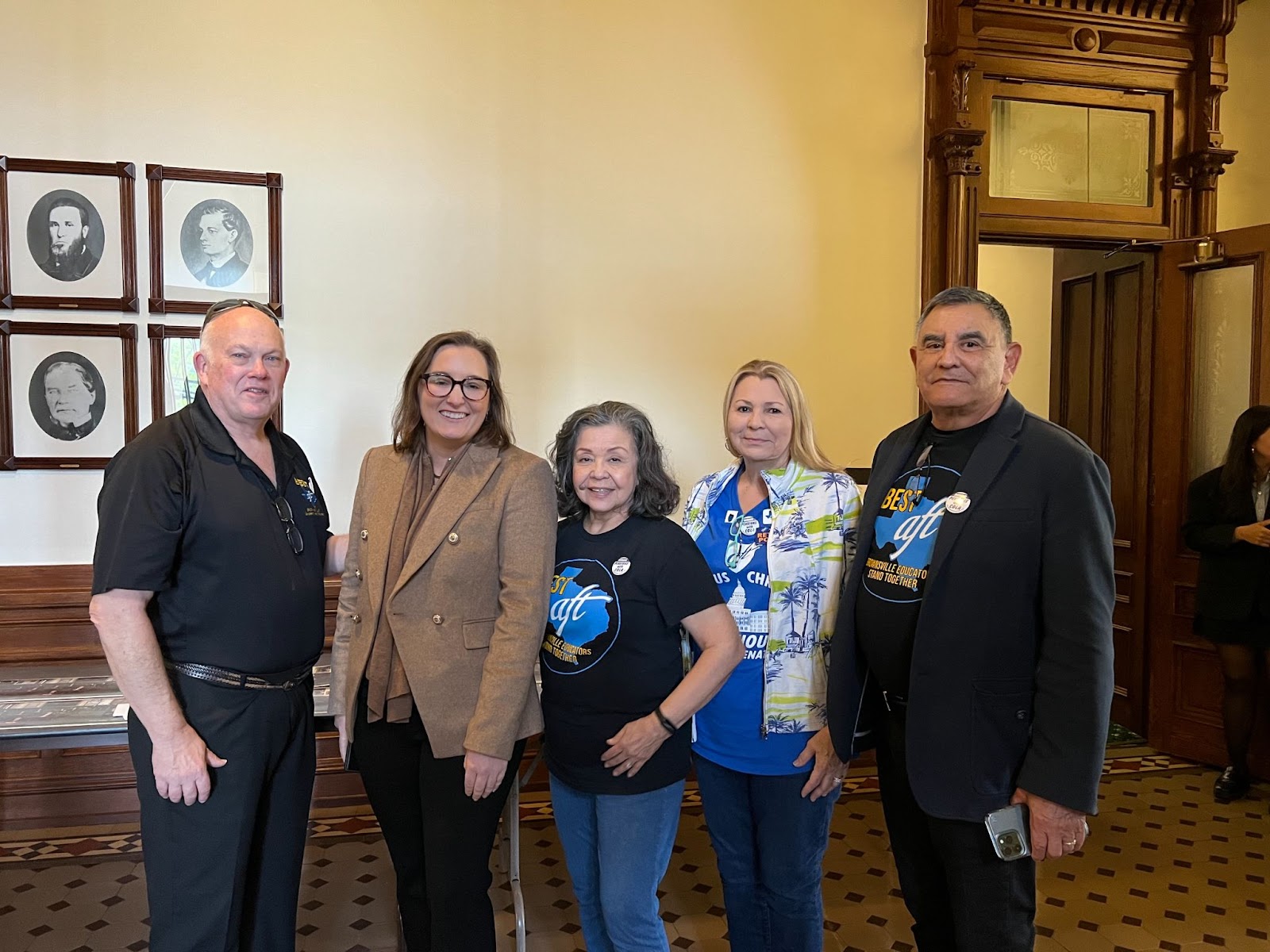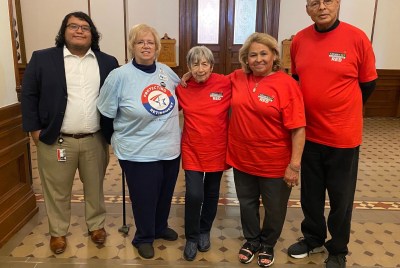
With a surplus that is itself larger than the entire budgets of 24 states, the state of Texas is poised to pass a meager raise to retired educators’ pensions that, at its most robust, would fail to match the cost of inflation for just the past two years, let alone the past two decades.
On Friday, the Texas House unanimously passed Senate Bill 10 and House Joint Resolution 2, which would provide tiered cost-of-living adjustments based on when an educator retired. While we are appreciative of the bill and the COLAs it would provide, they are nowhere near adequate to provide the relief retirees need.
Several amendments were offered to make SB 10 apply to more retirees and to increase the COLA, but few amendments were adopted. Notably, Rep. John Bryant (D-Dallas) filed two key amendments: one which would increase the COLA percentages for all retirees and another which would change the cutoff for the COLA, allowing those who retired in 2021 to be included. The House version of the bill would only include those who retired on or before December 31, 2020, whereas the Senate version includes those who retired on or before December 31, 2021. Both of Rep. Bryant’s amendment failed.
An amendment by Rep. John Bucy (D-Austin) which would require the legislature to examine the effect of inflation on retiree benefits every session going forward was adopted.
Rep. Trey Martinez Fischer proposed an amendment to push back the start date for the TRS payroll tax increase by two years. Currently, active educators contribute 8% of their salary to TRS. This payroll tax is scheduled to increase to 8.25% next school year. As currently written, the bill would increase that payroll tax to 9% of an employee’s salary.
Rep. Martinez Fischer’s amendment would have simply pushed back the start date of that payroll tax increase by two years with funds already allocated in the budget. The amendment would have saved teachers an estimated $709 million dollars over the next biennium, yet the amendment failed when put to a vote on the House floor. However, a provision to pay for this increase was put in place in another piece of legislation.
HJR 2, which would provide the funding for the TRS COLA, was amended to include a provision to cap any future payroll tax hike at the rate of 9%. HJR 2 will now head to the Senate for that body’s approval. If the Senate approves HJR 2, then the resolution will be put on the ballot this November. Because HJR 2 is a constitutional amendment, it requires the approval of voters.
| When you retired | The pension increase you would receive with SB 10 | How much prices have increased since you retired |
| 2014-2020 | 2% | 15.9% |
| 2004-2013 | 4% | 29.5% |
| Before 2004 | 6% | 63.8% |
Texas AFT Retiree Plus members were at the Capitol on Monday to explain that the COLA plan currently proposed does not go far enough to increase retirees’ pensions.
“Think about people when you look at those percentages,” said Lydia Carillo-Valdez, a retired teacher from San Antonio, before relaying just some of the stories she’s heard from her peers.
There was the 72-year-old retired Texas educator who walks to her job at a local deli each day — with a cane in each hand — because she cannot afford the gas.
Another retiree, Carillo-Valdez noted, went eight months without a water heater, even in the dead of winter. Her story mirrors that of a couple, both retired from teaching, who choose every summer between turning on a light or using their air-conditioning to keep their utilities bill under control.
Texas educators who have retired since September 2004 have never received a cost-of-living adjustment (COLA) to their pensions. They are still living on the same monthly check they did when they first left the classroom, even though a dollar today is worth less than two-thirds of what it was worth in 2004.
“I retired 10 years ago,” said Phyllis Ruffin, a former paraprofessional from the Houston area. “The Consumer Price [Index] has increased by about 30%. Under the proposed [COLA] plan, I would get a 4% adjustment.”
The House and the Senate have passed different versions of SB 10, which will now have to be negotiated and combined in a conference committee. It is our hope and our next advocacy push that the legislators hammering out the details — as well as those lawmakers negotiating the entire state budget — will put more money toward a true COLA.
“Until we get this right on teacher retirement, we’re going to have a hard time drawing people into this great profession,” said Rep. John Bryant (D-Dallas). “We hear so much about the ‘great state of Texas.’ A state is only as great as its willingness to meet its moral responsibility to those who made us great.”
In his remarks at the morning press conference, Bryant noted that Texas has the lowest contribution rate to its teacher retirement system in the country, despite having the world’s ninth-largest economy.
A retired educator in Texas lives on an average monthly pension of $2,147. Most have little to no Social Security benefits, either. According to the Teacher Retirement System of Texas, roughly 96% of Texas school employees do not pay into Social Security.
Calling the current proposals “well-intentioned” but inadequate, Rep. Mihaela Plesa (D-Dallas), urged educators to call their representatives and, in turn, urge them to do more on a real COLA this session.
Heeding that call, retired educators from Austin, Corpus Christi, Dallas, El Paso, Houston, the Rio Grande Valley, and San Antonio met with both representatives and senators in their offices Monday.








